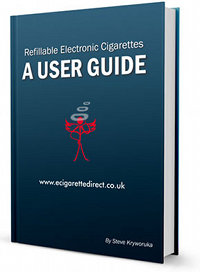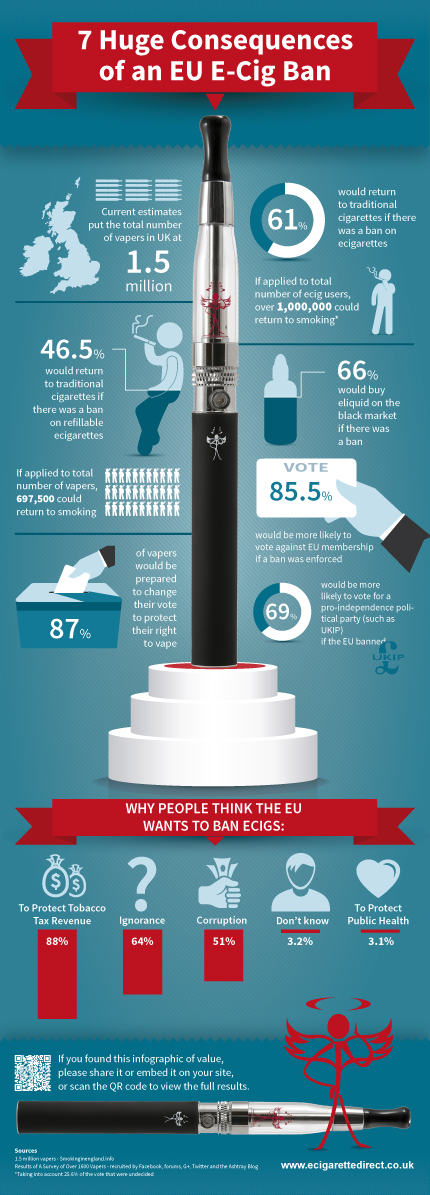I've mentioned earlier that I'm having a hard time understanding why the Cancer Society and other anti-smoking organizations are demonizing e-cigarettes. One would think that this kind of organization would be advocating for the e-cigarette as they are advocating for harm-reduction and NRT. The fact some of them even admits that the e-cigarette is considerably safer than normal cigarettes makes this even more strange. Why do the ones that should have been a friend, now appear to be an enemy?
But are these organizations the real enemy, or are they just marionettes? In October last year German TV-station WDR aired a piece on lobbyists, roughly translated and published
here by Christopher Snowdon. It shows us who the sponsors of the
SmokeFree Partnership (http://www.smokefreepartnership.eu/) are, and guess what... they are pretty powerful friends to have: Johnson & Johnson, Novartis, GSK, Pfizer. All big pharma companies. Maybe that explains why this organization, that claims
"the tobacco pandemic is nurtured by a global industry (editor: Big Tobacco) which transcends national and regional boundaries" and have put
"Flexible and Innovative" as one of their key values, is still trying to get the e-cigarettes effectively banned? So these guys, that are trying to make themselves look like David fighting Goliath (big Tobacco), are just big pharma's lobbyist in the European Parlament. And there are more like them. Just have a look at the list of anti-smoking organizations, that opposed e-cigarettes, that received money from Pfizer during 2011 and 2012:
http://tobaccoanalysis.blogspot.ca/2012/09/anti-smoking-groups-that-opposed.html?m=1.

But so what? Isn't it big pharma just trying to help, getting rid of the tobacco pandemic, by creating NRT products that helps us quit? To be honest,
sadly I don't think so. First of all there are studies that shows these
NRT products really aren't that effective (
http://tctactics.org/index.php/Pharma). Actually it seems it's less effective than quitting cold turkey: 19% success vs. 26% in this study:
http://tobaccoanalysis.blogspot.co.uk/2012/01/new-study-reveals-that-widespread-use.html. And, as I've urged others to do before, I can use myself as an example. I've tried some of these NRT products and I did not succeed. So for big pharma, this is all about the money. I've not been able to dig out the numbers for the Norwegian Cancer society or other Norwegian anti-smoking (and anti-e-cigarette) organizations but have a look at who pops up on the Norwegian Prostate Cancer society (which is also a member of the Cancer Society):
http://www.prostatakreft.no/index.php?option=com_content&view=category&layout=blog&id=11&Itemid=6. No less than 3 pharma companies, Pfizer being one of them. Sadly I believe that this is the case for a lot of the Scandinavian anti-smoking organizations as well as the Cancer Societies. I have no proof of this so if anyone actually can prove me wrong I would be really happy as this means we can have an unbiased debate with them here in Scandinavia.
 |
| FDA to war against e-cigarettes |
The American Cancer Society is another example of Big Pharmas enormous efforts in this matter. Just have a look at the way they are demonizing e-cigarettes on their homepage (
https://www.cancer.org/myacs/eastern/areahighlights/cancernynj-news-ny-ecig-health-vote):
"In fact, they may entice young people into trying traditional
cigarettes. We also have questions about the safety of these devices.
In lab tests, the FDA found some samples contain carcinogens and other
toxic chemicals. Using e-cigarettes can be like trading one deadly
behavior for another.", then
"There is currently no scientific evidence about the safety of
e-cigarettes. In initial lab tests, FDA found detectable levels of
carcinogens (nitrosamines) and toxic chemicals, including an ingredient
used in anti-freeze, in two brands of e-cigarettes and numerous
cartridges.", and finally
"E-cigarettes have not been approved by the FDA for use in smoking
cessation. No evidence exists to show they help people quit smoking.". OK? All of these are quite simply lies. As you can see they keep referring to the FDA and their lab-tests. And guess what, both The American Cancer Society and the FDA receive funding from Big Pharma:
http://www.ecigarettedirect.co.uk/campaign/anti-e-cig-campaign-funding.html. There seem to be no end to the evidence if you start digging into this. And it seems to be no end to the list of organizations that which Big Pharma keeps throwing money at to get them to say what they want them to say.
I do believe, or at least I want to believe, that the pharma industry started out with good intentions, wanting to help people and improve public health. And I do believe there are pharma companies out there that really do care. But it seems like this foundation is fading. Something has happened along the way and now it seems that money and greed has taken over as the main driver for this industry. I mean, I fully understand that pharmaceutical companies co-operate and help fund organizations, and I do understand that the money they earn will enable them to do valuable research. So they should cooperate, and without the research of pharmaceutical companies modern medicine wouldn't have been where it is today. The problem is that to me it seems like at some point money became more important than health and parts of big pharma have lost sight of their values. This becomes very clear when the enormous potential of the electronic cigarettes when it comes to saving lives is overlooked in favor of money.
As I mentioned earlier some organizations, like the SmokeFree Partnership, wants us to look at them as the little David vs. Goliath, Big Tobacco. They also hints strongly (and many shouts out loudly) that Big Tobacco is the enemy here. Some say that we shouldn't believe a lot of the research, cause it's funded by Big Tobacco they say. Well talk about
throwing stones in glass houses, but anyway... where is Big Tobacco in all this? What are they doing to stop the e-cigarette revolution? It would be in their interest as the new competitor are taking their customers, wouldn't it? And this is an industry that is built around a product that kills half it's users, so one would think these guys would stop at nothing to keep the e-cigarettes off the market right? But wait... didn't big pharma just say that big tobacco is funding pro-e-cig science? So ... they are not trying to stop e-cigarettes then... but why?
Well Philip Morris, R.J. Reynolds, and Lorrillard are all in the e-cigarette business as well now.
 |
| It's all about the money |
So why would the big tobacco companies go into the e-cigarette business instead of helping big pharma keeping the e-cigs of the market. Have big tobacco gone soft? They would earn more money by doing that right? Or would they? Smoking rates are already decreasing and has been for a while. I've mentioned earlier that the number of vapers is expected to quadruple during 2014. So moving from a slowly dying market to an exploding market might not sound like such a bad idea after all. Could it be that big tobacco have actually learned something from the mistakes of others (the music industry for example), that you shouldn't fight against new technology? Could it be that they have realized that the revolution is unstoppable, and it's now about minimizing the losses. Or has Big Tobacco thought of another way to keep the e-cigarette market at bay? One possible tactic they could be aiming for is going into the business, then squeeze out all the competition, and finally make the e-cigarettes less attractive to keep people from smoking. Remember these guys are not exactly saints. Just have a look at how they are using the same lobbying tactics as big pharma: http://tobaccotactics.org/index.php/PMI%E2%80%99s_Lobbying_Campaign_to_Undermine_the_TPD. I'm honestly not sure what their plan is but t
here are two things about big tobacco I'm pretty certain about: 1. They have not gone soft.... it's all about the money, and 2. They are good at math. Cause when you think about it, both big pharma and big tobacco is facing a competitor with the potential to grab a lot of their customers. The difference is what they have chosen to do about it. One of them tries to fight it, the other one seems to have realized it's no use and is trying to join the revolution instead. Looking at the development and the latest prognosis for the e-cigarette market, and the fact that there will be like 80 million e-cigarette users (assuming the current growth rate continues) before the TPD is implemented, it's beyond me why they are not both joining the revolution. And looking at these numbers, to me it seems that right now the revolution can't be stopped, the snowball is already moving to fast. That means regarding big tobacco, we can only hope that they have entered the e-cigarette industry to make it grow and make money in a new market, not to destroy it. I'm not even sure they know themselves yet, but I'm sure it will be the option that will generate the most money for them, I don't think they give a shit about public health to be honest. Either way, entering the e-cigarette business is the right thing to do for big tobacco right now, because whatever the outcome is when it comes to regulation and the TPD, they end up in control, to some extent at least. But can this control be minimized by a regulation scheme that gives the new player, the current growing e-cigarette industry, a fair market to compete in. Maybe the best way to fight Goliath is rolling with the punches from time to time, and strike back when the timing is right? It's all about knowing your enemies.
Because right now it seems Big Pharma is the real enemy of the e-cigarette, not Big Tobacco: http://washingtonexaminer.com/big-pharma-not-tobacco-companies-wages-war-on-electronic-cigarettes/article/2539441. In an ideal world, in my opinion, Big Tobacco, Big Pharma and the new e-cigarette industry would work together to achieve the same goal: better public health. But again, it's all about money, so this is again utopia, isn't it? Or maybe, just maybe could the EU and US government through reasonable regulation, designed for safety and based on real unbiased science, actually make this a possibility? What if we could make sure the e-cigarette market is a market where all these players can make good money? But do anyone possess the power to make this happen? Well, yes. The EU and US government has, but in order to make this happen, they have to know their enemies. And who are their enemies? Big Tobacco and Big Pharma? Well, to some extent yes, but they don't need to be. Their biggest enemy is greed. Know your enemy!



























